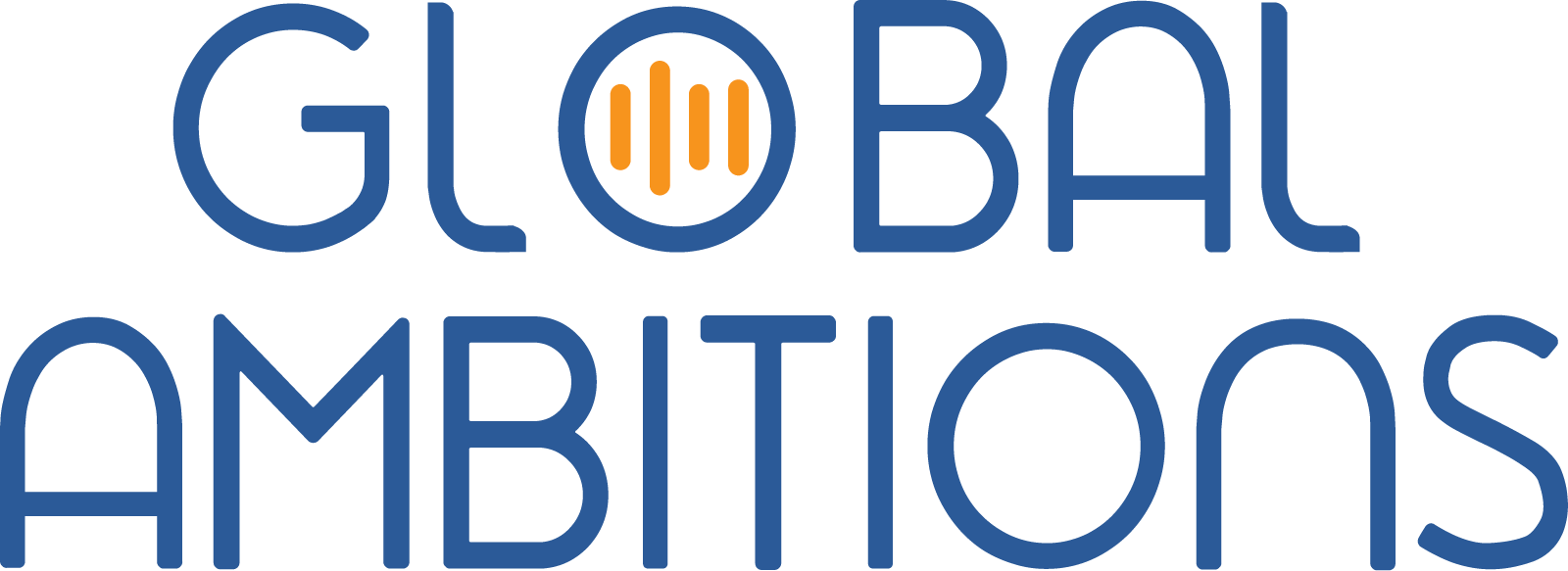With Véronique Özkaya, CEO of Argos Multilingual
Below is a full transcript of this episode.
Stephanie Harris
Hi, my name is Stephanie Harris, and I’ll be your host today for this episode of Global Ambitions. Our guest today is Véronique Özkaya and she is the Chief Executive Officer at Argos Multilingual. Veronique, welcome to the program.
Véronique Özkaya
Thank you, Stephanie. Really glad to be here.
Stephanie Harris
Our topic today is building a diverse team to the benefit of the overall organization. But first, would you mind sharing a little bit about your background?
Véronique Özkaya
Sure. So I have been in the localization industry for most of my career. I started off in the diplomatic corp and that was very, very brief and I shifted into the translation localization industry. I think I’ve probably done all the jobs possible, from being a translator to a project manager to moving to sales and so on. And really, I think I would characterize myself as a growth leader.
So I’ve worked in kind of small and much larger enterprises, and really since I’ve kind of shifted to a more commercial career that’s been driving me. And at Argos, it’s the same thing. So growth leader and also quite passionate about diversity because I’ve had the chance to work in many, many different companies and seen how important this is actually to grow and thrive in your work.
Stephanie Harris
OK, great. So maybe my first question will be how did you get so interested in this topic and why? Why do you think this is such an important thing to be promoting within organizations?
Véronique Özkaya
Sure. So I mean, I think it’s kind of looking back at my career and whatever events happened that got me emotional, quite angry sometimes and felt that you know, as a woman, sometimes it was hard. It was hard to actually build the career. And I reflected upon that and always thought that when you have really diverse teams, that’s where you have the most success because, you know, having just clones of yourself, it just doesn’t work. So that was one thing during my career.
The second thing, I’m also a mother of three daughters. So that’s also important to me that I would feel that they would have equal opportunities in their lives. And I think we’ve made a lot of progress, but there’s still progress to be made. So these two things are really kind of made me quite passionate about the topic.
Stephanie Harris
So I know that you’ve worked with this with many organizations. What are some of the biggest challenges that you’ve come across when you first broached the subject and getting started?
Véronique Özkaya
You know, Stephanie, bias, like you have conscious bias, right? And that’s kind of easy because conscious bias, you realize it and you can kind of put a name on it in a way. But I think one of the big challenges is what I call unconscious bias. It’s things that, you know, you don’t realize your bias. Let me maybe give you an example.
Let’s say that you are hiring, right? And you are, you know, you want to increase the representation of women, let’s say, in your team, right? So you interview a lot of candidates and they have the same skillset, so you look at their resume. It is quite similar. But maybe without realizing it, you may hire the male candidate over the woman candidate because the male candidate will display higher confidence during the interview.
Stephanie Harris
Right.
Véronique Özkaya
So what happens there? It might be that your choice has nothing to do with gender. But unconsciously, you’re actually favoring individuals who display a certain behavior, that confidence behavior. And where does that lead, right? It’s our society’s beliefs really about men, women, and leadership. And when you think about it, we tend to think, you know, men are assertive and decisive and then women are more communal and warm. They are caring and sympathetic. So sometimes you have gender stereotypes that clash with leadership prototypes. And I think that we don’t realize it.
But it’s there and that is tougher to address than a very conscious bias you may have. So I think that it lies in organizations and in our lives, and we’re not necessarily aware of this going on.
Stephanie Harris
So you realize that we have these unconscious biases and you know that we need to address them somehow. What is the first step, priority one for getting these types of diversity inclusion initiatives started in an organization?
Véronique Özkaya
I think that as a business leader, if this is an important topic to you, and it should be, the first thing is to actually put this on the agenda of the organization, meaning that it has to be, you know, really an initiative or something strategic that’s in your playbook in a way. Right?
The second thing would be, of course, to involve H.R. because the thing is that they can be very powerful in the H.R. department. I mean, we’re talking about talent, we’re talking about people and actually executing this agenda of diversity. And it might be things, very concrete things. It might be on the recruitment process to actually train people who are doing recruitment and actually assessing these unconscious biases and having actual techniques to avoid being biased in doing the recruitment. Same thing when it comes to staff retention and promotion and performance management.
I think that it’s really crucial to recognize that we may have bias, we may discriminate without realizing it. So what are the techniques that can be implemented? And then you train people and put it actually on the agenda. Raising awareness is already a big step, right? I think that for me is like, really, where you start. You raise awareness. And I think that most companies would welcome this on an agenda as something that really the company strives to increase inclusion.
Stephanie Harris
So I say that I’m a team leader or someone who just has my group in the organization and I don’t have access to those top CEO leaders who can set the overall company strategy. What can I do just within my team, within my group in order to influence and promote diversity and inclusion in my sphere?
Véronique Özkaya
Yeah. And I think that as a team lead or people manager, you already have such a big role because your role is to lead by example. So if you make that conscious, you know, like drive to increase diversity and you apply that to your team, I think, first of all, you’d be very surprised. The results of your team are going to be better. And that’s actually proven data. Harvard Business School reviewed that. They had a very interesting article to say that, you know, teams that are more diverse are actually more successful.
So my advice is don’t hire clones, try to, you know, get people who are very different from you. And so if you lead by example and your team is successful, that’s already a very good blueprint for expanding that because, you know, in an organization as a team leader, whatever your position, you will have peers who also have teams. And I think that’s how you kind of spread it out in the organization. And I think that when also the results of what you’re doing are going to be visible, that’s actually naturally going to percolate to the top and you really can make a big influence in the organization.
It takes one person to change, right?
Stephanie Harris
Yes, just one to start. So as far as actionable things that you can do to start increasing that awareness and the visibility even within your own team, what are some tips or things that you would recommend that people do?
Véronique Özkaya
I think something that surprised me, what I thought was actually very effective is to try and realize what bias you may have unconsciously. And there is like, a really interesting test you can take the call the implicit association test, and there are a bunch of them out there. You know, a lot of the universities are researching that so you can go on the internet and look for these, these IATs, these implicit association tests. And you might be very surprised by what you found out once you’ve answered a bunch of questions.
So I think that actually awareness is the first step, right? Realizing that you as an individual, forget the rest, but start with you. If you can realize that you may have bias, I think that would be a tip. Definitely, I would recommend it.
I see also the second thing, and that’s something I’ve learned, is to try and dissociate emotion and action. And the reason I say that is that when you might be a victim of discrimination or bias or you see bias, right, that generally generates feelings of anger or sadness or, you know, emotion really bubbles up. But then once the emotion is gone, are done, what are you going to do?
The thing that we need to kind of say is, OK, we might be emotional about some things, but we also need to take action. So I think that would be my second piece of advice if it can be advice.
But say, you know what? The reality is, our generation probably has it easier than previous generations. I know, a lot of people say, Oh, you know what? There’s still so much injustice, right? However, if you can step back a hundred years, I think we have made a lot of progress. The road is very long and the way we’re going to really experience and live true diversity is actually by making change.
So I say, you know what? It’s OK to be emotional, but what are you going to do about it? And you know, again, it takes one person to change. That would be my second tip.
Stephanie Harris
OK, well, is there anything else around this topic of diversity and inclusion that you think is good to think about or that we should be considering?
Véronique Özkaya
Yeah, I think maybe the last thing I would mention, Stephanie, is that, you know, start with yourself, meaning, you know, if you are a mother or father, if you have children, you have that responsibility to raise them. Maybe that’s where you start as well.
But it is to kind of say, you know what? Look at the statistics. So I’m a CEO and in a company in localization. If you look at the stats, less than five percent of CEOs of global companies are women in the US and Europe. You know, and I’m not complaining. I’m just saying it’s just the facts, right? You know, like, it’s whatever, 16 percent in Norway, one percent in China, there is still a long way to go. Start with your children. Tell them everything is possible and, you know, try and not get them to have unconscious bias, right? Just because that’s your task.
One thing that I thought was really funny. Back in 1962, Mr. Nelson Mandela was boarding a plane and actually had a panic attack on the plane. And the reason he had a panic attack was that the pilot was black. And you know what? In 1962 nobody had seen a black pilot in South Africa. And I thought that was kind of amazing because that would be just normal, right? So I think, you know, it’s how we start.
You know, we can start with our children and we can actually be much more open-minded and much more focused on diversity.
Stephanie Harris
Yeah. So a lot of our listeners here are in the localization industry or in international go-to-market strategy positions. Is there anything that you think you could give some advice to folks that we should be thinking about as a whole as a group? Our responsibilities?
Véronique Özkaya
Well. You know, I think, Stephanie, we’re in a perfect place, aren’t we? Our business is about going global, being global, connecting people. And I think that we have somehow a level of diversity. But aren’t we in the best position to actually promote diversity?
Stephanie Harris
Right.
Véronique Özkaya
So what I would love is that I would really love for the industry to raise awareness much more and lead by example. You know, maybe we can be an agent of change in this business because of where we are and what we represent. So I think that that would be great. That would be my dream, that the industry becomes a leader in diversity awareness and promotion.
Stephanie Harris
Yeah, I think that’s a great goal and something that we should all be working towards. Well, it’s been an absolute pleasure to talk with you today, and thank you so much for coming on the show.
Véronique Özkaya
The pleasure was all mine, Stephanie. Thank you so much.

Véronique Özkaya
CEO of Argos Multilingual




